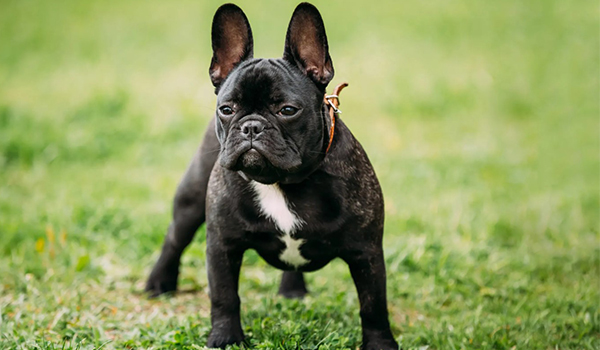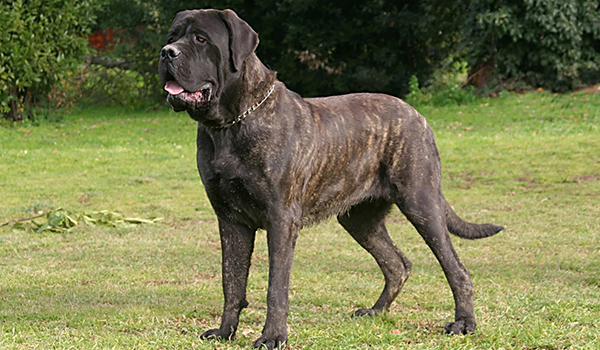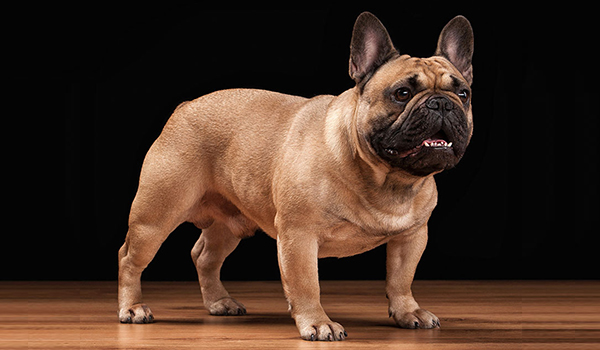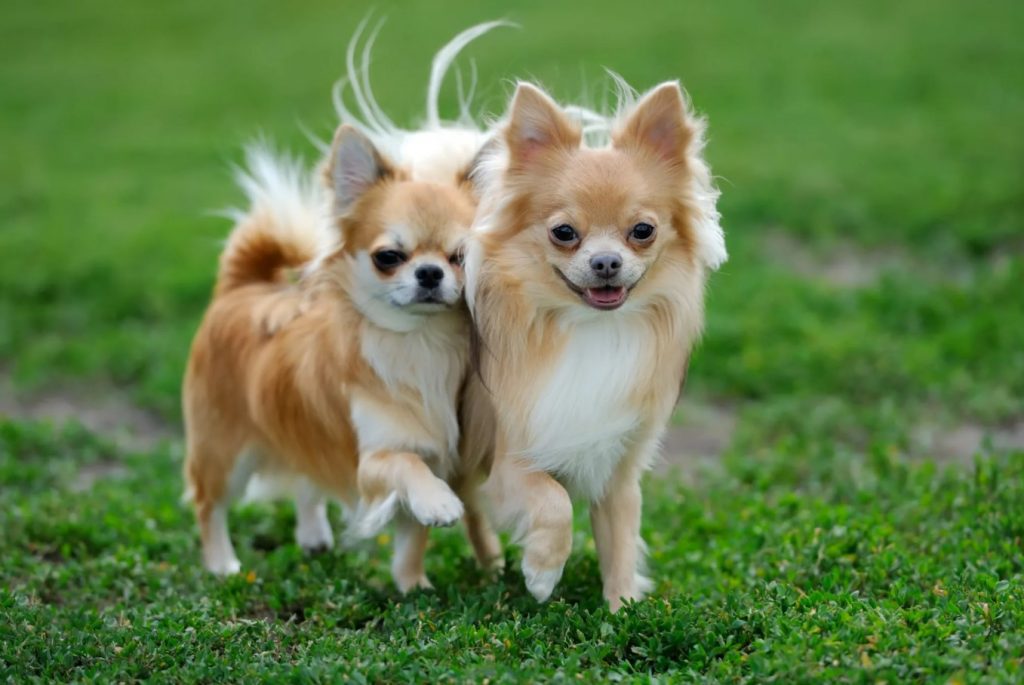
The Chihuahua is a tiny dog with a titanic personality. As the smallest breed in the world, they are known for their compact size, prominent eyes, and bold, confident demeanor. They are fiercely loyal to their chosen person and possess a charm that has made them a favorite for centuries. However, their petite stature belies a complex character that requires specific understanding and care.
This comprehensive guide will explore everything a future owner needs to know about the Chihuahua, from their ancient history to their modern-day “Napoleon complex,” to help you decide if this big-hearted little dog is the right fit for your home.
Breed Overview
- Group: Toy
- Height: 5 – 8 inches (at the shoulder)
- Weight: Typically under 6 pounds; often as small as 2-3 pounds.
- Life Span: 12 – 20 years (one of the longest lifespans in the dog world)
- Coat: Two varieties:
- Smooth Coat: Short, soft, and glossy.
- Long Coat: Soft, flat or slightly wavy, with feathering on the ears, legs, and tail.
- Colors: Can be any color, solid, marked, or splashed.
A Brief History: An Ancient Treasure
The Chihuahua’s history is shrouded in some mystery, but it is an ancient breed with roots in Mexico. They are believed to be descendants of the Techichi, a small, mute dog kept by the Toltec civilization in Mexico as far back as the 9th century AD.
The modern Chihuahua is named for the Mexican state of Chihuahua, where the small dogs were discovered in the mid-19th century. They were brought to the United States by travelers and quickly gained popularity. Their tiny size and portability, combined with their lively personality, have made them a constant favorite among city dwellers and celebrities alike.
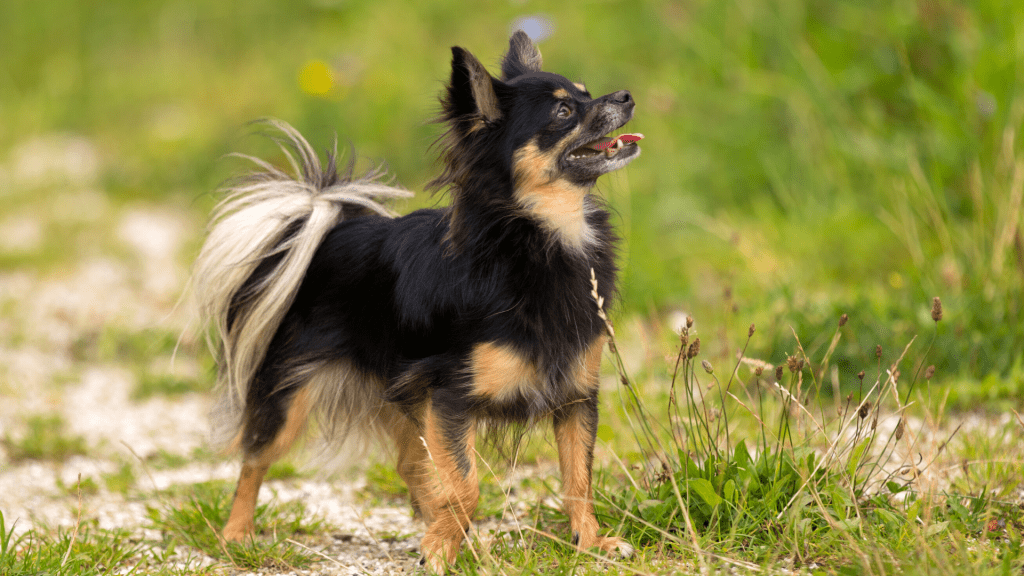
The Chihuahua Temperament: Loyal, Bold, and Opinionated
The Chihuahua’s personality is anything but small. They are known for their confidence, which often extends to a “big dog” attitude.
- Devoted & Loyal: Chihuahuas often form an intensely strong bond with one person, becoming a true “velcro dog” that wants to be with their owner at all times. They can be wary of those outside their inner circle.
- Charming & Alert: They are lively, alert, and curious about their surroundings. They make excellent watchdogs and will bark to alert you to anything unusual.
- Confident & Courageous: They are often completely unaware of their small size and can be fearless, sometimes to their own detriment. This can lead to them challenging much larger dogs.
- Sassy & Opinionated: They have a reputation for being saucy and having a mind of their own. They can be stubborn and are not always eager to please for the sake of it.
- Can Be Nervous or Timid: Without proper socialization, their boldness can turn into fear-based behaviors like shaking, hiding, or snapping. This is often mistaken for being “cold,” but it is a sign of anxiety.
Caring for Your Chihuahua
Exercise: Small Needs, Big Benefits
Their exercise requirements are minimal and perfectly suited for apartment living.
- Daily Requirements: Short walks and active indoor play sessions are sufficient. Their tiny legs get a lot of exercise just following you around the house.
- Mental Stimulation: They are intelligent and enjoy learning tricks, using puzzle toys, and interactive games. This helps prevent boredom and associated behavioral issues.
Grooming: Varies by Coat Type
- Smooth Coat: Very low-maintenance. A quick weekly brush with a soft bristle brush or grooming mitt is all that’s needed.
- Long Coat: Requires brushing 2-3 times a week to prevent tangles, especially in the feathering.
- Both Types: Regular nail trimming is critical (their nails grow quickly), along with teeth brushing and ear cleaning.
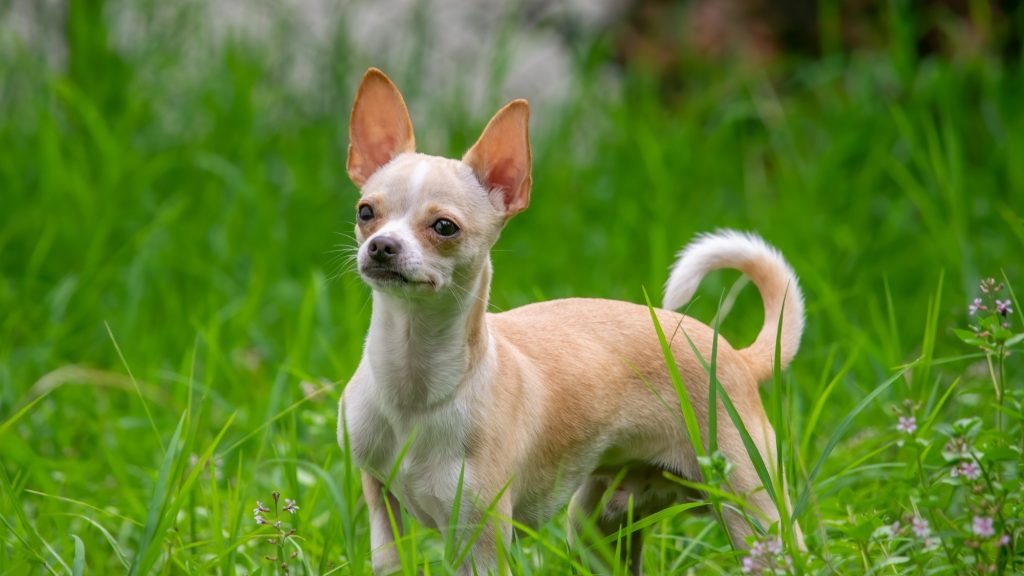
Training: Consistency and Positive Reinforcement
Training a Chihuahua requires patience and a gentle hand. Their small size does not exempt them from needing structure.
- Start Early: Begin socialization and training as soon as you bring your puppy home. Expose them positively to a wide variety of people, sounds, and other calm, vaccinated dogs. This is the key to preventing fear-based aggression and nervousness.
- Housetraining: This can be challenging. Their small bladders need frequent opportunities to go outside. A strict, consistent schedule is essential. Many owners use puppy pads as a reliable backup.
- Positive Reinforcement: They respond best to reward-based training with small, tasty treats and plenty of praise. Harsh discipline will frighten them and break their trust.
- Manage Barking: Teach a “quiet” command to control their alert barking, which can become excessive.
Health: What to Be Aware Of
Due to their tiny size, Chihuahuas are prone to specific health issues.
- Dental Problems: This is the number one health concern. Their small mouths lead to severely crowded teeth, making them highly prone to plaque, tartar, and early tooth loss. Daily teeth brushing and regular veterinary dental cleanings are non-negotiable.
- Luxating Patella: A common condition in small breeds where the kneecap slips out of place.
- Hypoglycemia: Low blood sugar can occur, especially in very small or young puppies. It’s important to feed them small, frequent meals and recognize the signs (lethargy, weakness, seizures).
- Collapsed Trachea: Characterized by a honking cough. It is managed by using a harness instead of a collar for walks to avoid pressure on the neck.
- Heart Problems: Such as mitral valve disease, which becomes more common in their senior years.
- Molera (Soft Spot): Like human babies, some Chihuahuas are born with a soft spot on the top of their skull. It usually closes with age, but owners must be careful to avoid injury to the area.
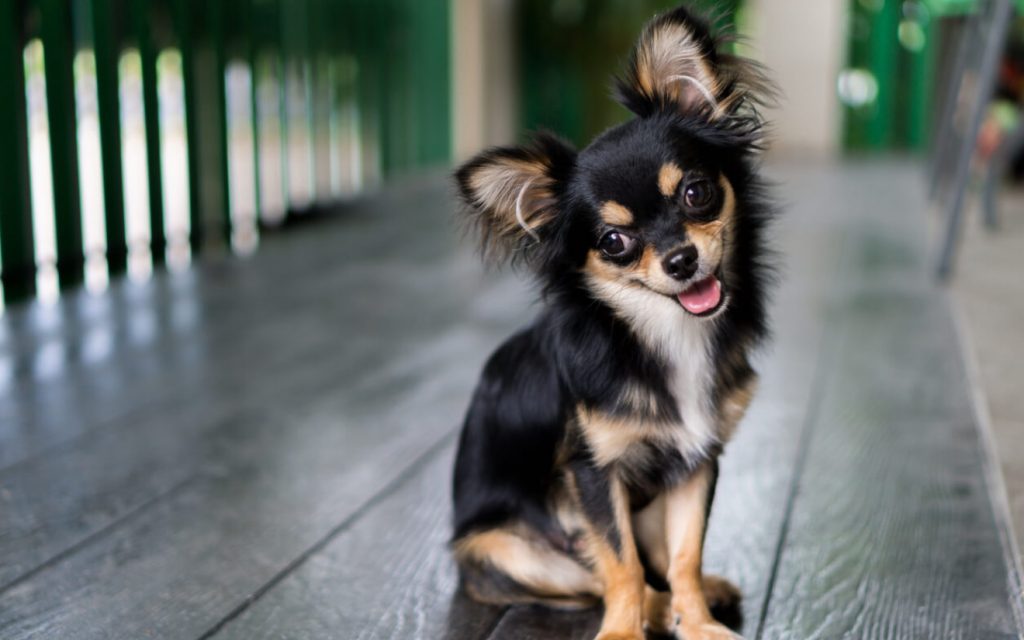
Is a Chihuahua Right For You?
A Chihuahua might be your perfect match if you:
- Live in an apartment or have limited space.
- Want a loyal, portable companion that will be your shadow.
- Lead a relatively calm or sedentary lifestyle.
- Are home often and can provide plenty of attention.
- Are prepared to be a vigilant advocate for their safety.
You might want to reconsider if you:
- Have very young children who might accidentally injure them.
- Want a rugged hiking or jogging partner.
- Are looking for a dog that is universally friendly with strangers.
- Are unprepared for the potential challenges of housetraining or dental care.

Finding Your Chihuahua
- Reputable Breeders: Choose a breeder who prioritizes health and temperament over extremely small size (“teacup” is not a breed standard and comes with severe health risks). They should perform health tests on their breeding dogs (like patella evaluations) and be transparent about the breed’s challenges.
- Rescue & Shelters: Chihuahua and small-dog rescues are extremely common. Many dogs end up in rescue due to owners being unprepared for their personality or lifespan. Adopting an adult can be a wonderful way to provide a second chance.
Understanding the Cost: The initial purchase price from a reputable breeder typically ranges from $800 to $2,500+. However, prospective owners must budget for significant ongoing costs, particularly veterinary dental care, which can be expensive. High-quality food, grooming, and potential treatment for other health issues should also be factored in.
Bringing a Chihuahua into your life means committing to a dog with a larger-than-life personality packed into a tiny body. In return for your care, protection, and devotion, you will receive a lifetime of fierce loyalty and entertaining companionship from a truly unique character.

